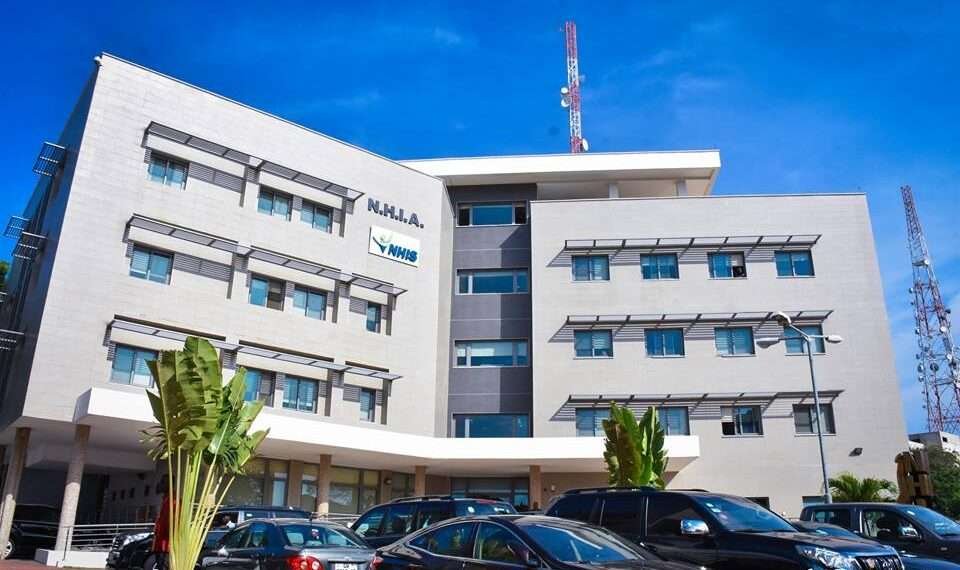The flagbearer of the New Patriotic Party (NPP), Dr. Mahamudu Bawumia, says the efficiency of the National Health Insurance Scheme (NHIS) has improved under the Akufo-Addo administration.
Dr. Bawumia hailed the health sector’s infrastructural advancements under the ruling NPP government as compared to the erstwhile National Democratic Congress (NDC) government led by former President John Dramani Mahama.
Furthermore, he indicated that the expansion of NHIS coverage to include treatments for childhood cancers and hydroxyurea for sickle-cell patients has relieved many Ghanaians of the financial burden as these treatments are rather costly.
Dr. Bawumia also noted that the introduction of an NHIS app by the government allows Ghanaians to register and enroll using their Ghana Cards, emphasizing that the digitalized system has made access to the scheme easy and has increased the number of clients on the scheme.
“The NHIS is working better under our government than it used to be. Besides resourcing it financially, we have also digitized it and linked it to the Ghana Card. So today, your NHIS number is your Ghana Card number. They can also renew their subscription and check the list of diseases that the NHIS covers, without traveling to any NHIS office”.
Dr. Mahamudu Bawumia
Moreover, the Vice President stated that to make health care easily accessible across the country, the government has overseen the connection of health facilities under the Ghana Health Service to one digital platform.
As such, he highlighted that all teaching hospitals and regional and district hospitals have been successfully interconnected, enabling seamless communication and effortless access to patient information and referrals.
This milestone achievement, Dr. Bawumia emphasized, facilitates efficient collaboration, enhances patient care, and streamlines the referral process, ultimately leading to better health outcomes.
He also noted that the government is committed to connecting over 90% of all hospitals in Ghana to the national healthcare network by the end of 2025.
He emphasized that the government will make good on its promise to significantly invest in healthcare infrastructure development, with a focus on bridging the healthcare gap in underserved rural communities.
As such, he stated that a robust investment in the health sector will ensure equitable access to quality healthcare services for all Ghanaians, regardless of their location or socio-economic status.
Dr. Bawumia’s Government To Ensure Inclusive Healthcare
Furthermore, the NPP flagbearer indicated that should he win the December 7th Presidential election, his government will implement targeted initiatives to address healthcare disparities among vulnerable populations, including women, children, the elderly, and persons with disabilities.

“In addition, we will increase recruitment, training, and retention of healthcare professionals, including doctors, nurses, midwives, and community health workers, to address workforce shortages and improve service delivery”.
Dr. Mahamudu Bawumia
Moreover, he pledged that his government would enhance the sustainability and efficiency of the NHIS system through sweeping reforms, vowing to bolster its sustainability and efficiency by broadening coverage to reach more Ghanaians, enhancing revenue mobilization strategies, and streamlining operations to eliminate administrative inefficiencies
He emphasized that these comprehensive reforms are aimed at ensuring the long-term viability of the NHIS, providing universal access to quality healthcare and financial protection for all citizens.
However, it is imperative to know that the National Health Insurance Scheme (NHIS) faces numerous challenges, including inadequate funding, inefficient revenue mobilization, and unsustainable financing models, which threaten its long-term viability.
The scheme also faces challenges of administrative inefficiencies, cumbersome claims processing, and inadequate provider reimbursement rates further exacerbating the situation, and ultimately impacting the quality of healthcare services and access to care for beneficiaries, particularly vulnerable populations.
These challenges crippling the scheme highlight the urgent need for comprehensive reforms to address these systemic issues and ensure the scheme’s sustainability and effectiveness in providing universal health coverage.
READ ALSO: Friendship, A Two-Way Street



















